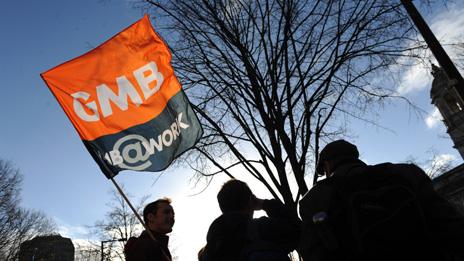Schools and public services hit by one-day strike
- Published
Union leaders claim pay freezes leave low paid workers struggling to cope
Schools, courts, job centres and council services have been hit as around 70,000 public sector workers in Wales joined a one-day strike over pay, pensions and working conditions.
Union leaders claim pay freezes leave low paid workers struggling to cope.
Welsh councils say a pay rise worth 1% to most workers and 4% to the lowest paid is the fairest they can afford.
The UK government has said public sector pay restraint protects jobs, services and the national finances.

Local authorities in Wales expected "minimal" disruption to core services, but several closures and service changes were announced in advance of the strike:
Most schools in Wales have been closed or partially shut due to a strike by the National Union of Teachers
Many leisure centres, libraries and community centres will be closed
Waste collection services will be disrupted
Cardiff's Butetown Tunnel and the locks of the Cardiff Bay Barrage will be closed
All National Museum sites will be closed, apart from the Roman Legion Museum in Caerleon
The National Library of Wales in Aberystwyth will be open but with a restricted service
However, health boards in Wales have did not expect any disruption as a result of strike action.
Neath Port Talbot council said no funerals took place at Margam Crematorium or at any of the council's cemeteries.

Across the UK, more than a million public sector workers took part in the industrial action, thought to be the biggest over pay since the Conservative/Liberal Democrat coalition came to power in May 2010.
Those walking out included:
Council staff and school support workers who have dismissed a pay offer worth 1% to most
Teachers who say they are "under attack, external" from the government on pay, pensions, workload pressure and conditions
Civil servants, including Passport Office, job centre and courts staff, who have rejected a pay rise capped at 1%
Firefighters involved in a long-running row over pensions and retirement age staged their latest walkout between 10:00 and 19:00 BST

More than 900 schools were closed in Wales and a further 200 partially shut, out of a total of 1,600 state schools.
Striking workers held rallies around the country with around 200 people gathered at Castle Square in Swansea and about 100 at an event in Wrexham.
Other rallies took place in Cardiff, Bangor, Carmarthen and Merthyr Tydfil.
The Trades Union Congress (TUC) claimed that pay freezes and below-inflation rises had left public sector workers £2,245 worse off on average since the UK coalition government took office.
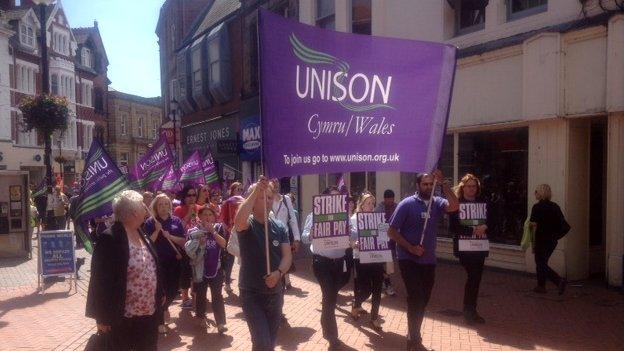
A march took place in Wrexham
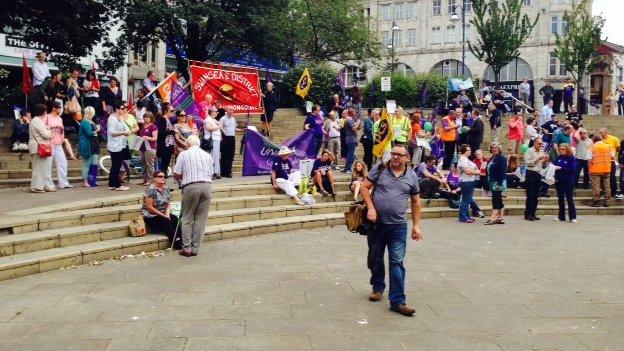
Around 200 people gathered for a rally in Swansea
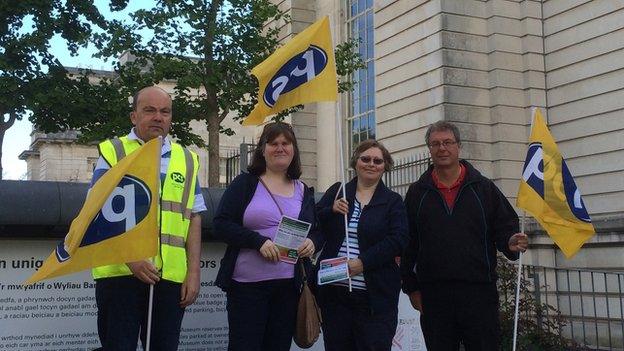
A picket was set up outside National Museum Cardiff on Thursday
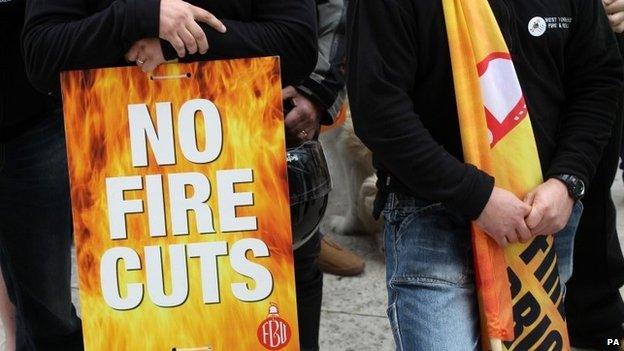
Firefighters staged their latest walkout to coincide with the wider strike action
General Secretary Frances O'Grady said public sector workers would have "no shares" in the UK's economic recovery, but faced "several more years of penny-pinching and frugal living".
The Welsh Local Government Association (WLGA), which represents local councils in Wales, said it had "complete sympathy" with the unions' frustration over austerity, but local authorities could not afford to improve their pay offer.
Chief executive Steve Thomas said: "The financial and service demand pressures being placed on our already fragile local public services mean that there simply will be no other pay offer made to employees.
Robin Jones of the PCS union says wages are not keeping pace with the cost of living
"It is highly unfortunate that a small minority of union members are now encouraging a day of strike action that will see their members lose a day's wage, when the stark financial reality is that there is simply no money available to allow employers to improve the offer that has already been tabled."
Cabinet Office minister Francis Maude has criticised unions for holding strikes based on ballots with low turnout, claiming that one persuaded just 20% of its eligible members to vote.
But Owen Hathway, Wales policy officer at NUT Cymru, said there was a mandate for strike action among teachers despite the ballot being two years ago.
"Throughout the entirety of those two years we've been in constant dialogue with our members," he said.
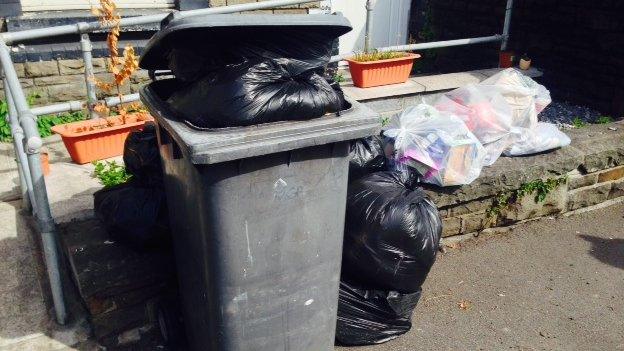
Rubbish in Neath Port Talbot, which will not now be removed for another fortnight due to the strike
"We've conducted surveys of tens of thousands of our members as an ongoing practice to ensure we're kept abreast of how they're feeling about this strike action.
"We wouldn't take this action if it wasn't for the fact that that's the will of the members."
In June, the Cabinet Office said public sector pay restraint had saved £1.1bn in 2013/14, external, adding that it was necessary to protect jobs and public services, and to help restore the national finances.

Butetown Tunnel closure:
Welsh Conservative leader and South Wales Central AM, Andrew RT Davies, has labelled Cardiff council leaders "incompetent" as the industrial action forced the closure of the city's Butetown Tunnel.
"The knock-on effect of the closure of the Bute Tunnels have been enormous. Commuters from all walks of life and all professions have been hit by the ensuing gridlock, along with businesses across the city," he said.
Cardiff council said the tunnel was monitored for breakdowns and accidents through the council's control room - which helped keep the tunnel "operating smoothly and safely".
Cabinet member for transport Ramesh Patel said: "A risk assessment needed to be undertaken in relation to the industrial action and unfortunately, on this occasion, with the fire service who would act as first response to a serious accident also on strike, it meant that the tunnel had to be closed.
"This was not an action which was taken lightly. "

At the Welsh assembly, no committee meetings were scheduled for Thursday and visitors were warned that the Senedd building in Cardiff Bay may be closed due to strike action.
A Welsh government spokesperson said: "Ministers will be undertaking government engagements and dealing with any matters that arise throughout the day but will not be crossing picket lines."
- Published10 July 2014
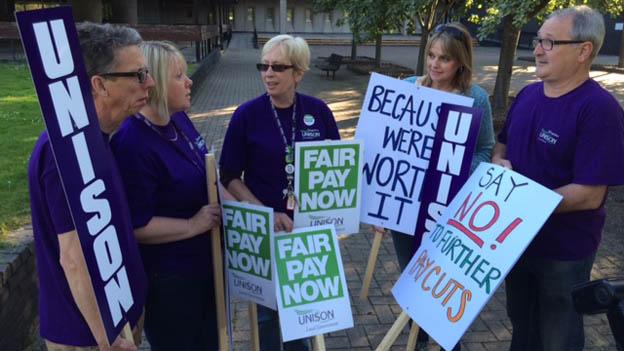
- Published10 July 2014
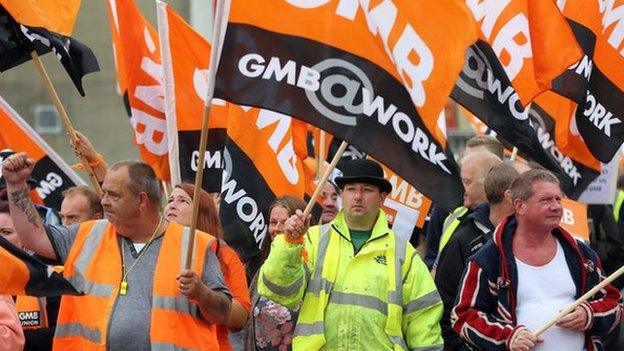
- Published9 July 2014
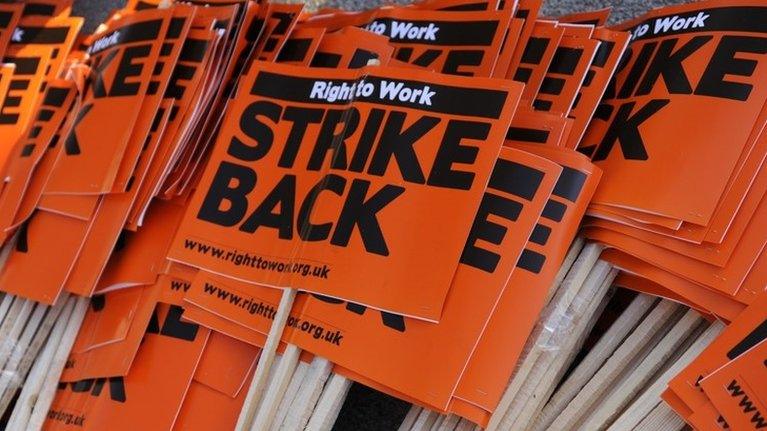
- Published6 July 2014
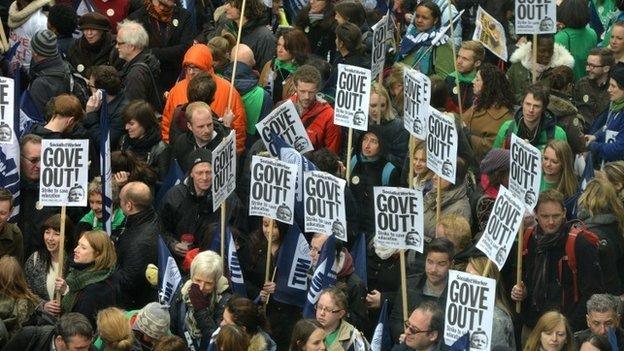
- Published2 July 2014
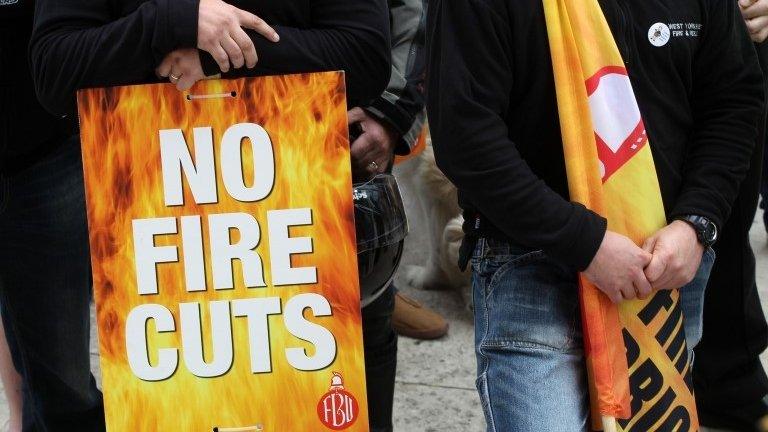
- Published1 July 2014
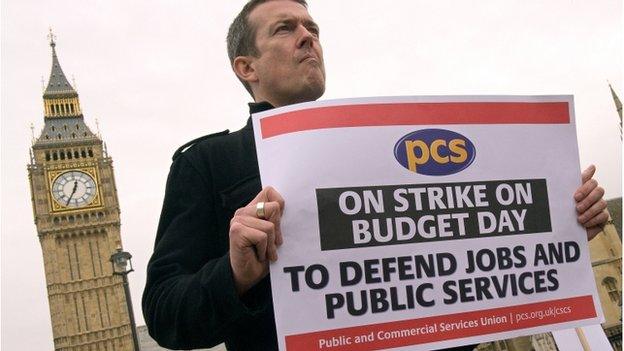
- Published27 June 2014
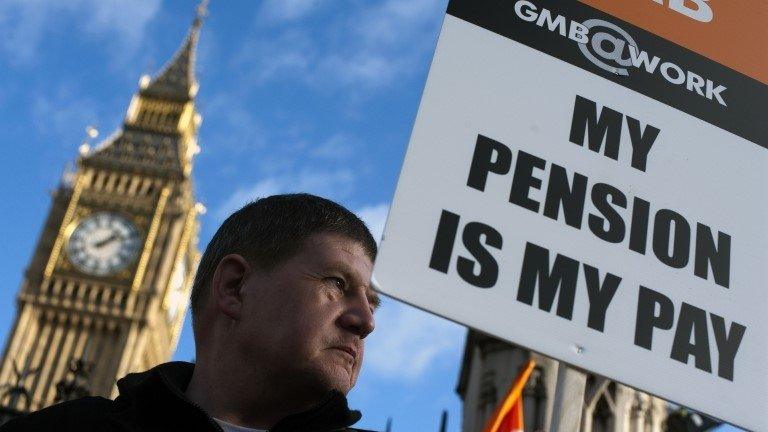
- Published23 June 2014
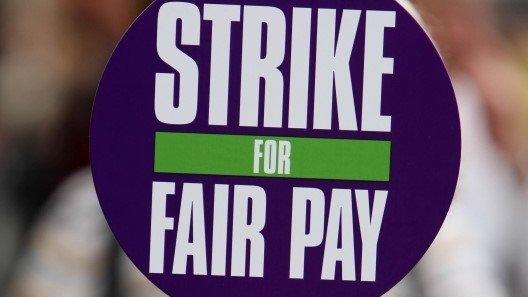
- Published19 June 2014
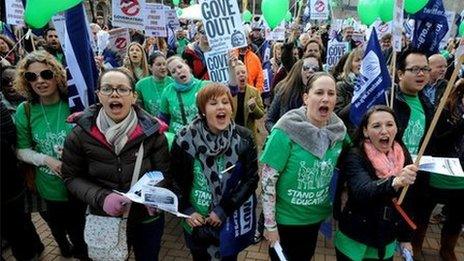
- Published30 November 2011
